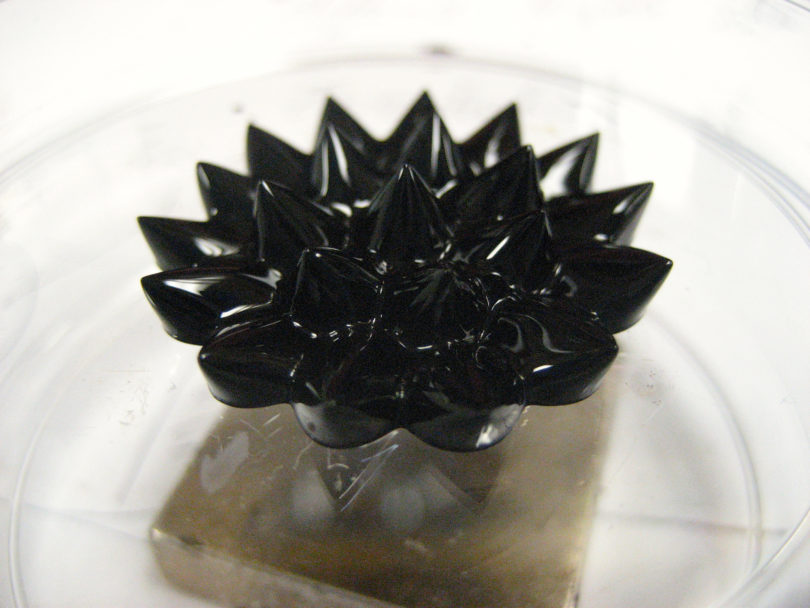Athens, Ga. – While many college football fans are focused on this week’s matchup between the University of Georgia Bulldogs and the Clemson University Tigers, researchers from the two institutions are collaborating off the field to develop a low-cost technology to detect cancer.
Leidong Mao, an associate professor in the UGA College of Engineering, and Jian He, an assistant professor of physics and astronomy at Clemson, have discovered a system to measure magnetic properties of materials. They’re doing this by combining their knowledge of ferrofluids, or liquid magnets, and microfluidics, fluids geometrically constrained to a typically sub-millimeter scale.
“Conventional equipment for measuring magnetic properties of materials is large and expensive,” Mao said. “By combining these two technologies, we are able to measure magnetic properties of materials using a low-cost, small device that works quickly and leaves a small footprint.”
The researchers are using their technology to isolate cancer cells with magnetic particles.
“Being able to measure magnetic properties in a low-cost and fast fashion is of great importance in the area of biomedical research,” He said. “We aim to use our technique not only to measure magnetic properties but also as a diagnostic tool to distinguish between normal cells and cancer cells in the long run.”
The research collaboration will continue to build on current results of their technology and apply to other types of applications, including materials research and cancer diagnostics.
UGA College of Engineering
The University of Georgia College of Engineering is the country’s newest engineering school at the oldest state-chartered university. Offering a fundamental yet comprehensive and robust educational experience, the college prepares students to become successful, practicing engineering leaders, capable of working in complex arenas. For more information, see http://www.engr.uga.edu/.







